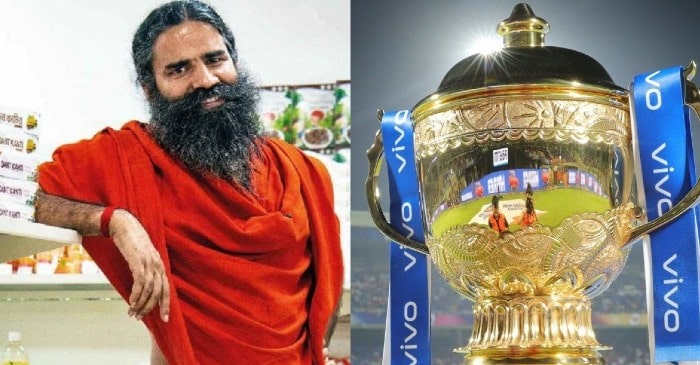Fans are eagerly waiting for the Indian Premier League (IPL) 2020 to kick-off in the United Arab Emirates (UAE), however, before that the Board of Control for Cricket in India (BCCI) is scrambling to find the new title-sponsor after Chinese smartphone maker VIVO’s sudden exit.
Meanwhile, Yoga guru Baba Ramdev’s Patanjali Ayurved is reportedly considering bidding for the IPL title sponsorship slot.
“We are considering the IPL title sponsorship for this year since we want to give the Patanjali brand a global marketing platform,” Patanjali spokesperson SK Tijarawala told Economic Times.
But, Patanjali Ayurved might have to face fierce competition because as per media reports names of several giants including Jio, Amazon, the Tata group, Dream11, Adani group and education start-up Byjus have been doing the rounds as potential candidates for the IPL’s title-sponsorship.
Also, considering the current situation in the country, especially the anti-China wave, market experts believe that Patanjali Ayurved has an advantage in acquiring the cash-rich deal.
“Patanjali as a title sponsor for IPL will do more for Patanjali than for IPL. While the caste hierarchy among brands could play out, Patanjali owning the title sponsorship would be contextual from a nationalist perspective, since there is an enormous anti-China sentiment prevailing in the country,” said brand strategist Harish Bijoor as quoted by ET.
Moreover, the title sponsorship would be beneficial for Patanjali Ayurved as from the past few years, the Baba Ramdev-led company, which sells a range of grocery products including, honey and noodles in the Ayurveda and natural products space, has been running out of gas in dominating large categories like biscuits and toothpaste primarily due to allegedly inconsistent quality and trade disruptions.
Earlier in the month of June, Patanjali Ayurved was involved in controversy after Ramdev launched Coronil claiming that these kits can cure Covid-19 patients. But, the Ayush ministry directed the company to sell the product only as an immunity booster and not as a cure for COVID-19.
